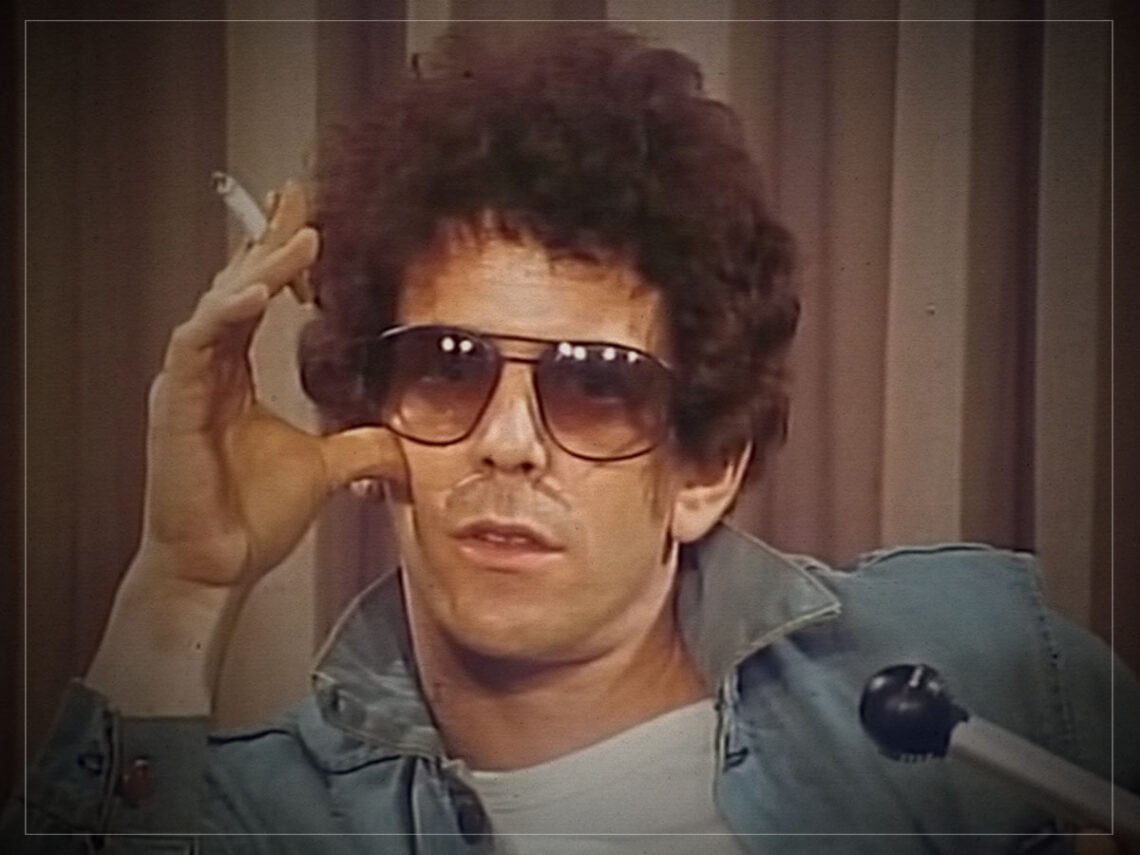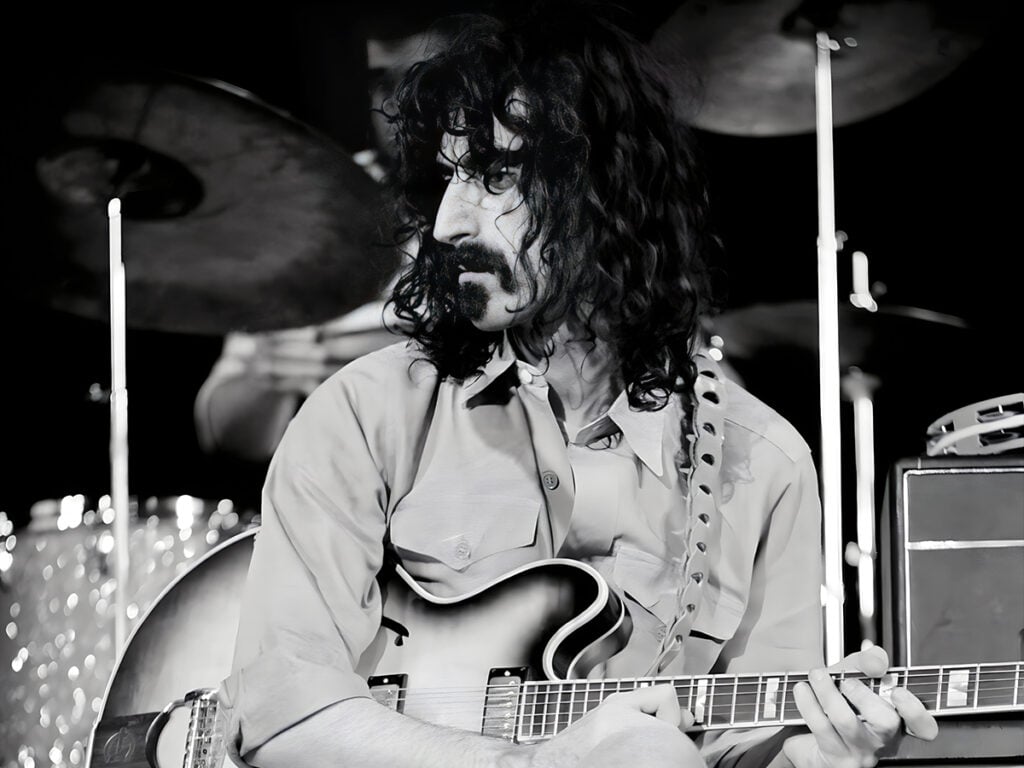
(Credits: Far Out / YouTube Still)
Tue 21 October 2025 16:23, UK
Lou Reed was about as cuddly as a cactus and as complimentary as a compilation of X-Factor first-round exits. However, much like the undignified absurdity of colonic irrigation, there was method to his verbal flow of scathing scatological slander.
One of music’s true iconoclasts, he found himself an industry outsider from the get-go after the magnificent, rule-book rewriting, Velvet Underground only peaked at 171 in the charts despite a stunning discography. This outsider status seemed to suit him all the same, so he set up shop as a pariah of mainstream society and sat on the outskirts of culture, hurling abuse at those he felt were wandering behind the advancing avant-garde.
If you were platitudinous rather than pioneering, then you were prone to come under his fire, whether you were The Beatles, The Doors or even a patron like David Bowie, whom he once punched in the mouth.
Thus, it was perhaps his most curious castigation when he took aim at a fellow freak from the demimonde and rendered him worse than shit in a storm of cutting abuse. When asked for his opinion on fellow artists in 1973, he hurled a hatchet at the head of Frank Zappa and opined: “He’s probably the single most untalented person I’ve heard in my life.”
Not content with simply slandering him with such an outlandish criticism, Reed went on to add substance to his scathing slant: “He’s two-bit, pretentious, academic, and he can’t play his way out of anything. He can’t play rock ‘n’ roll because he’s a loser. And that’s why he dresses up funny. He’s not happy with himself, and I think he’s right.”
Despite this, the pair were cut from a similar cloth. When the world zigged, Frank Zappa zagged. In fact, even Zappa’s own cultural critiques seemed unique. You’d be hard-pressed to call his brand of contrarianism the same type of iconoclastic behaviour we have come to expect from many rock stars, simply because it always seemed more off the wall and leftfield than merely saying ‘I don’t like The Beatles’.
In fact, while he didn’t like the Beatles, Zappa was also happy to claim that they had written at least three magnificent songs, and curiously classed ‘I am the Walrus’ among his all-time favourites. This is perhaps the reason he was once Reed’s latest target – they were the inverse and obverse of the same obscure coin, and they weren’t too pleased with that.
In fact, both artists were so far ahead of their time in bracing subjects seemingly beyond the pale that they flopped until sensibilities caught up with them, resurrecting the New York band from the ash heap of history and catapulting Zappa as a guitar God who represented the ironic face of liberation. Thus, Zappa and the Velvet Underground represented the proverbial immovable object and unstoppable force when it came to bitter bickering. A feud proved inevitable.
The acrimonious spat apparently began when The Velvet Underground were playing on Zappa’s west coast patch in Los Angeles in 1966 as part of Andy Warhol’s art collective, The Exploding Plastic Inevitable. The story goes that Zappa made a sarcastic comment about the artistic band and their creative coterie of Factory stars that filtered through in the underground music scene. This jibe was only exacerbated further because both acts were signed to MGM, and Zappa, as the main rival avant-garde act, was receiving way more promotion.
In response, Lou Reed announced long before his magazine column quotes above: “Frank Zappa is the most untalented musician I’ve ever heard.” Later adding, “He can’t play rock ‘n’ roll because he’s a loser.” To which VU guitarist Sterling Morrison added: “If you told Frank Zappa to eat shit in public, he’d do it if it sold records.” Comically clarifying that he would only eat shit “if I liked to.”
Far from mere absurdity, this quote even kick-started a myth that Zappa did, indeed, eat shit on stage. This was not true. In fact, he didn’t even badmouth his most fierce rivals.
As Zappa’s Mothers of Invention bandmate Jimmy Carl Black once said, “I don’t remember Zappa actually putting them down on stage, but he might have. He really disliked the band. For what reasons, I really don’t know, except that they were junkies and Frank just couldn’t tolerate any kind of drugs. I know that I didn’t feel that way, and neither did the rest of the Mothers. I thought that they were very good, especially Nico (whom I secretly fell in love with or was it lust?).”
Continuing: “I especially thought that Moe was a very good drummer because in those days I don’t recall there being any other female drummers on the scene. The thinking of the audiences was completely different than those from New York City. They were lukewarmly received.”
Eventually, the hatchet once hurled would well and truly rest underground as Reed would go on to posthumously induct Frank Zappa into the Rock and Roll Hall of Fame, so it would seem that attitudes changed in the years that followed the initial bitter feud.
Nevertheless, ex-Velvet Underground multi-instrumentalist, John Cale, was still a little less willing to give up the ghost. In 1994, Cale stated, “[Zappa] isn’t really interested in music… he’s using music for animation.” It might be fair to say that he wasn’t necessarily interested in rock music, preferring heroes like the neo-classic Hungarian composer, Béla Bartók, but there was no doubting his dedication to the art form beyond commercial genres.
Unperturbed by Cale’s curious comment, Zappa also seemed to warm to Lou Reed and Co., playing tracks by the group in guest radio DJ sets and dubbing them as a truly “authentic” band. Their open discussion of drugs would no doubt have turned the teetotaler off, but he was also smart enough to see that as an honest reflection of the New York that they knew.
In the end, Zappa would seem that his gripe was more related to the heroin chic scene that surrounded Andy Warhol than the band themselves. And Reed responded in kind, as only he knew how. In short, it was simply in their nature to butt heads, it’s just that this battle was a bit like Fyodor Dostoyevsky’s The Double when two opposing, yet identical forces went to war for reasons that remain deeply psychological even when peace was arrived upon.
Related Topics


